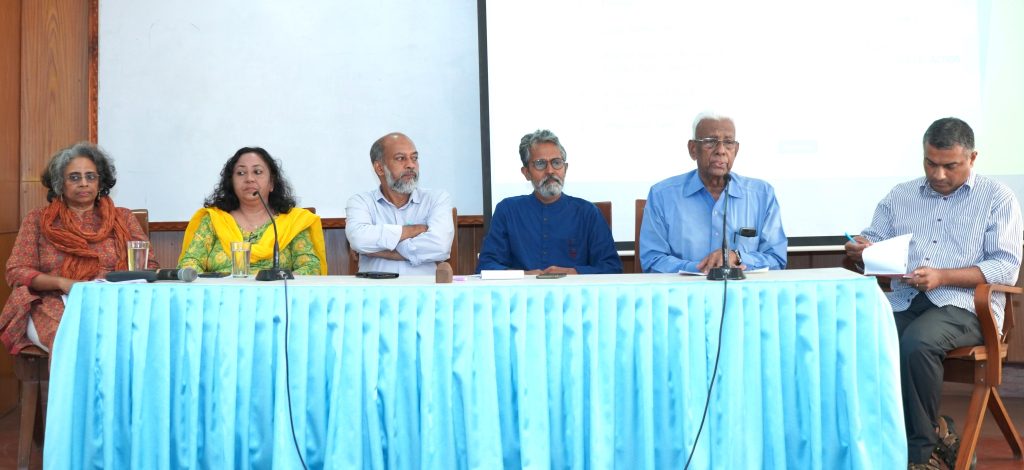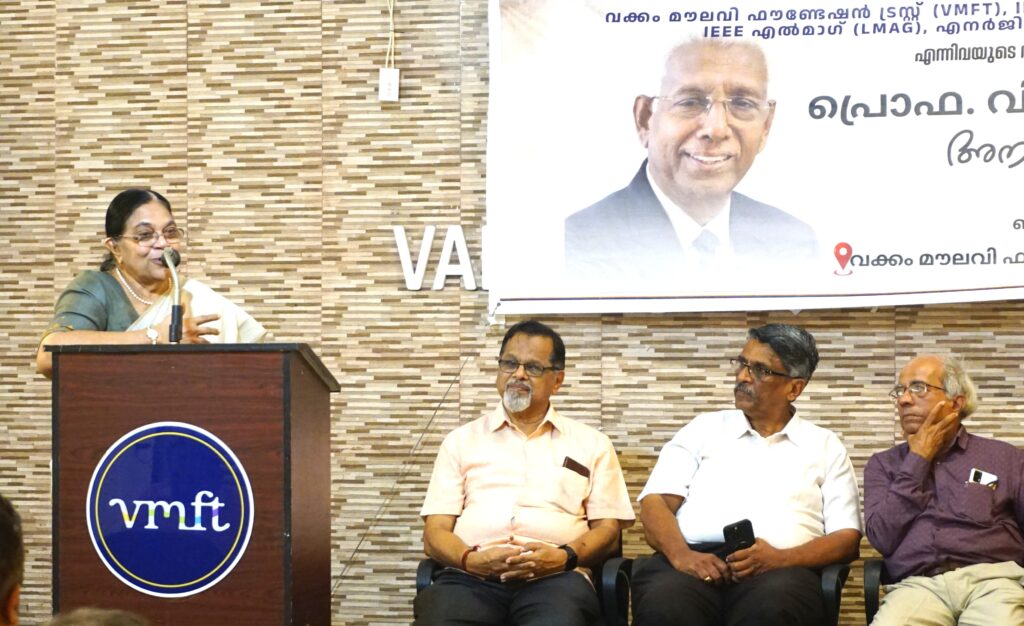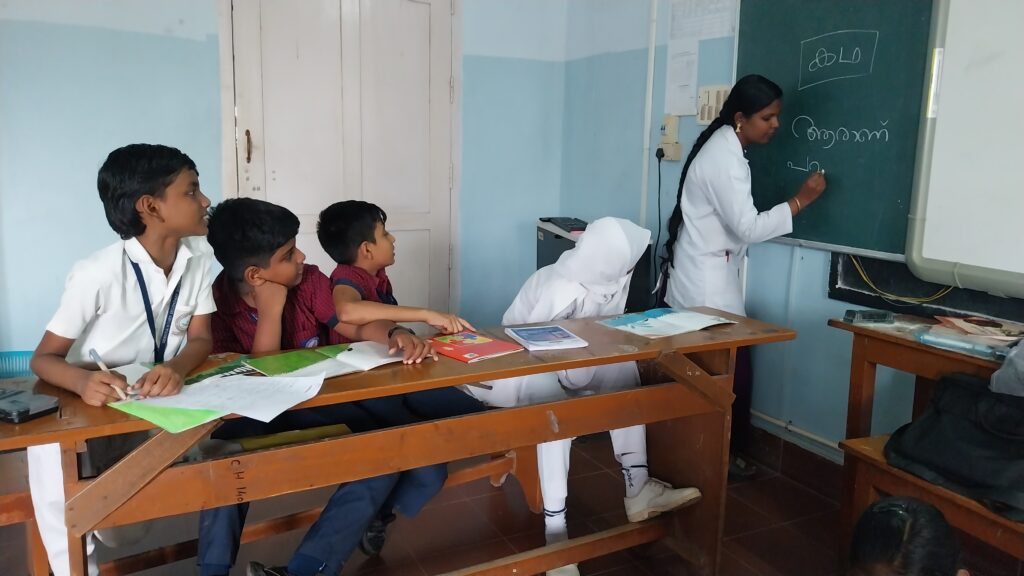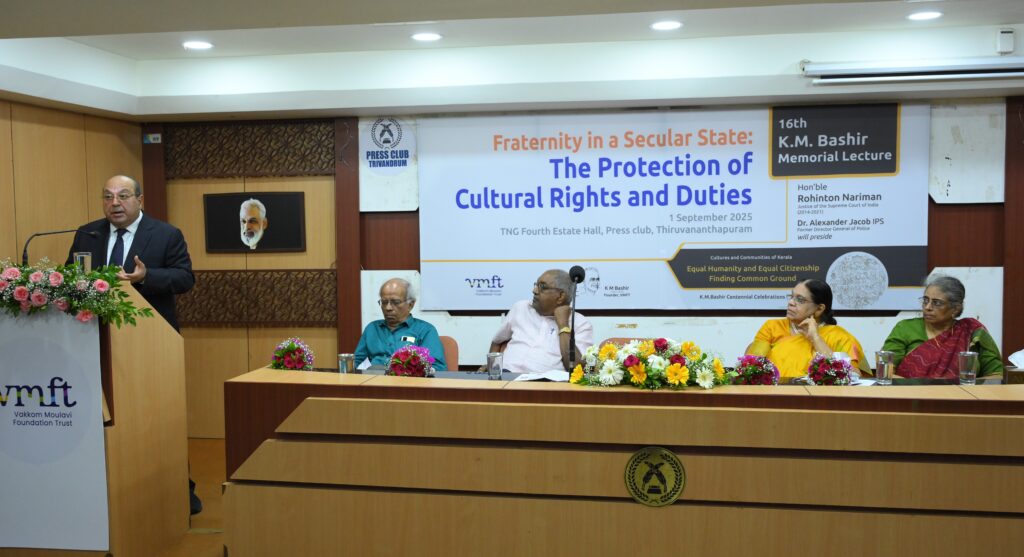Education researchers from Kerala, national and international speakers, teachers, NGOs and media gather to discuss research to strengthen Kerala’s education system during a seminar held on 6-7, December 2023 in Thiruvananthapuram, jointly organized by VMFT, Centre for Development Studies and Tata Institute of Social Sciences.
Despite its tremendous advances in universalizing participation in school education, Kerala does surprisingly little research on education in general, and on emerging challenges, such as teaching about climate change and environmental sustainability. This important finding was presented in the opening session, by Dr. Sajitha Bashir, Vice-Chairperson of VMFT, based on a review of thousands of research articles published in peer reviewed journals and Indian Ph.D theses. She emphasized that high performing education systems also do continuous research to improve pedagogy and curriculum, as well as the management of the education system. This is all the more important as our education system faces new challenges.
An impressive array of speakers addressed a multi-disciplinary audience of researchers, teachers, students and media. The keynote speaker, G.M. Pillai, provided a compelling overview of the factors behind climate change and its impacts at the global and local levels. Prof. V.K. Damodaran, President of VMFT, Dr. Padma Sarangapani of TISS and Prof. C. Veeramani, Director of CDS addressed the audience in the welcome session. 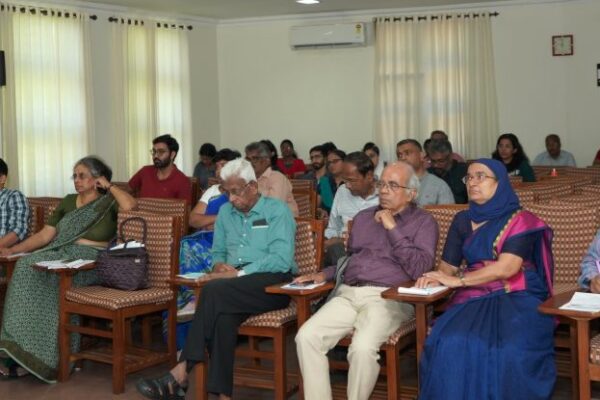
International presentations included those from researchers at the University of Jyväskylä, Global Partnership for Education, the Earth Institute of Columbia University and UNESCO, India office. Sajitha Bashir provided an overview of the evolution of Kerala’s school education system, with an analysis of large scale quantitative datasets such as UDISE Plus, the National Sample Surveys on education and the Periodic Labour Force Surveys. She highlighted the segmentation in the school system, with different socio-economic groups attending different types of schools (government, government aided and unaided schools) and with different languages of instruction. In her analysis of Kerala’s school curriculum and science textbooks, Dr. Anu Joy , Assistant Professor at TISS Hyderabad, emphasized that not much has changed in the way in which science has been taught over the years. Climate change does not figure prominently in the curriculum as yet, but environmental education has been taught for at least two decades. Developing curricula for climate change focused on local impacts and adaptation needs of local communities, as well as using project based learning to address real life problems are required strategies. Prof. J. Devika spoke about the need to place the teaching of climate change and environmental sustainability within the context of different “child protection” regimes that have characterized the state over the last century. These shape the modes of engagement between the state, teachers, parents and children. 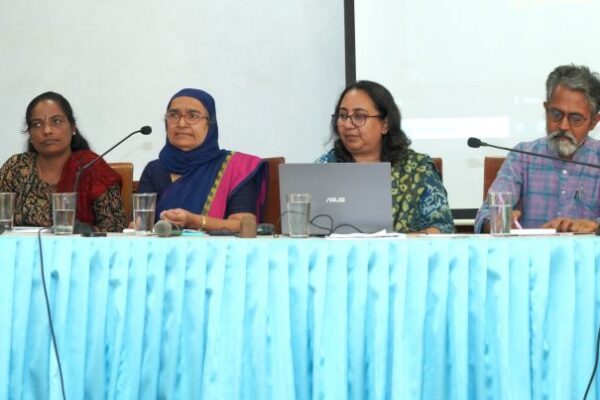 Teachers highlighted the lack of teacher training, the need to incorporate children’s lived experiences to develop locally relevant curricula and the need to address both children’s understanding of science and language needs. Media personalities spoke about the paucity of education research in Kerala and the lack of systematic and investigative reporting on the challenges facing the education system. The seminar concluded with concrete recommendations for deepening the research that was presented and identifying priorities for the future.
Teachers highlighted the lack of teacher training, the need to incorporate children’s lived experiences to develop locally relevant curricula and the need to address both children’s understanding of science and language needs. Media personalities spoke about the paucity of education research in Kerala and the lack of systematic and investigative reporting on the challenges facing the education system. The seminar concluded with concrete recommendations for deepening the research that was presented and identifying priorities for the future.
